Commercial property insurance is an essential safeguard for businesses of all sizes, providing coverage for the physical assets that are vital to their operations. Whether you own a manufacturing facility, a retail store, or a service-oriented business, protecting your commercial property is crucial to maintaining business continuity and financial stability in the face of unexpected events.
This type of insurance is designed to cover a wide range of commercial properties, including buildings, equipment, inventory, and other valuable assets, shielding them from perils such as fire, theft, and natural disasters. By understanding the key factors that determine commercial property insurance costs and the various coverage options available, businesses can make informed decisions to ensure their investments are properly protected.
Key Takeaways
- Commercial property insurance is essential for protecting a business’s physical assets, including buildings, equipment, and inventory, from perils like fire, theft, and natural disasters.
- The cost of commercial property insurance is primarily determined by the value and type of insured property, as well as factors like location, construction, occupancy, and fire/theft protection.
- Commercial property insurance policies offer coverage options such as replacement cost and actual cash value, allowing businesses to tailor their coverage to their specific needs.
- Businesses can employ risk management strategies, such as regular property maintenance and tenant screening, to further protect their investments and reduce insurance costs.
- Partnering with a reputable insurance provider and working closely with an agent or broker can help businesses find the right commercial property insurance solution for their unique needs and circumstances.
What is Commercial Property Insurance?
Commercial property insurance is a vital safeguard for businesses, providing coverage to protect their physical assets, including buildings, equipment, inventory, documents, and records, from perils such as fire, theft, and natural disasters. This comprehensive insurance coverage helps ensure the continuity and financial stability of a company, shielding its investments from unexpected events that could otherwise disrupt operations and jeopardize its success.
Key Coverages and Perils
Commercial property insurance policies typically cover a wide range of potential risks, from property damage caused by fires, storms, and other natural disasters to losses resulting from theft, vandalism, and other criminal activities. By mitigating these threats, commercial property insurance helps businesses maintain their operations, minimize financial losses, and focus on growth and development rather than worrying about the consequences of property-related incidents.
Protecting Your Business Assets
The primary purpose of commercial property insurance is to safeguard a business’s physical assets, including buildings, equipment, inventory, and other critical resources. In the event of a covered loss, the insurance policy can provide the necessary funds to repair or replace damaged or destroyed property, enabling the company to resume operations quickly and minimizing the impact on its bottom line.
Factors Determining Insurance Costs
The cost of commercial property insurance premiums is influenced by a variety of factors, including the value and type of the insured property, the location and construction of the buildings, the occupancy and uses of the property, and the level of fire and theft protection. Businesses located in high-risk areas, with buildings constructed from combustible materials, or engaged in hazardous operations tend to face higher insurance costs due to the increased risk exposure. By carefully assessing these factors and taking appropriate risk management measures, companies can optimize their commercial property insurance coverage and costs.
In summary, commercial property insurance is a crucial risk management tool that protects a business’s physical assets, ensuring their continuity and financial stability in the face of unexpected events. By understanding the key coverages, perils, and factors that influence insurance costs, businesses can make informed decisions and secure the appropriate level of protection for their unique needs.
Importance of Commercial Property Insurance
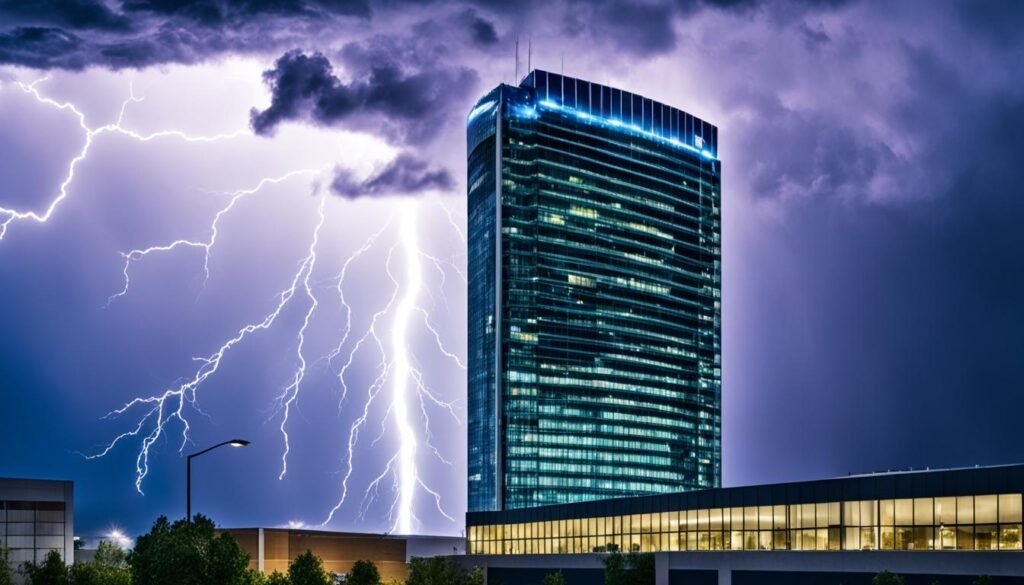
Commercial property insurance is crucial for businesses to protect their physical assets, such as buildings, equipment, and inventory, against unexpected events like fires, natural disasters, and theft. Without adequate coverage, these types of losses can significantly disrupt business operations and jeopardize a company’s financial stability. Commercial property insurance helps businesses recover more quickly from property damage or destruction, maintain business continuity, and avoid costly out-of-pocket expenses.
It is an essential risk management tool that safeguards a company’s investments and enables it to focus on growth and success, rather than worrying about the financial impact of a property-related incident. By protecting critical business assets, commercial property insurance ensures the continuity and long-term viability of a company, allowing it to weather unexpected disasters and remain competitive in the market.
Types of Properties Covered
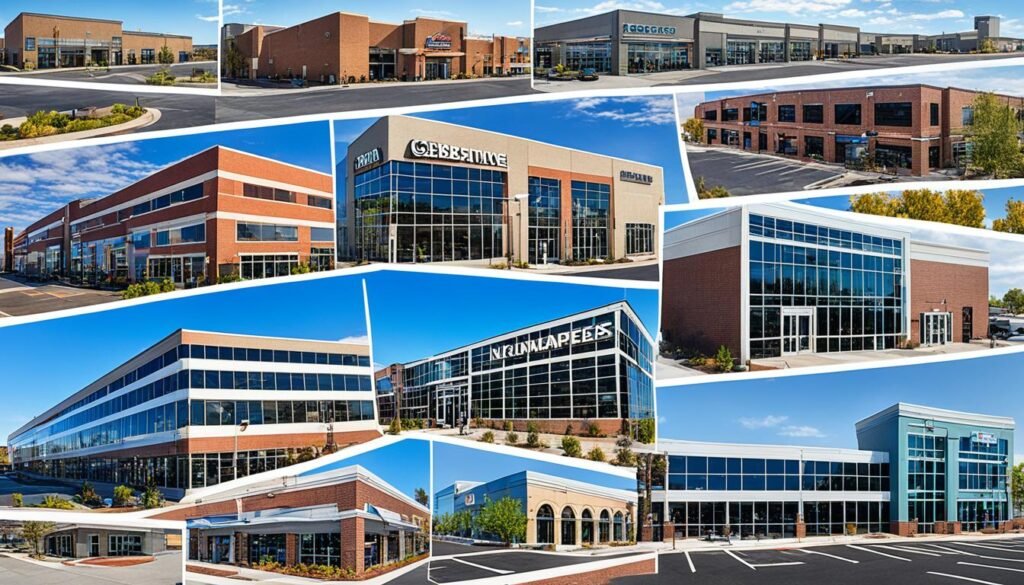
Commercial property insurance can cover a wide range of business assets, including buildings, structures, equipment, inventory, documents, and records. Depending on the commercial property insurance policy, these insured properties can be protected against a variety of perils that may threaten a company’s property coverage.
Buildings and Structures
The commercial property insurance policy can provide coverage for the physical structures that house a business, such as commercial buildings, warehouses, and other commercial structures. This includes protection against damage or destruction caused by events like fires, storms, and vandalism.
Equipment and Inventory
In addition to the buildings themselves, commercial property insurance can also cover the equipment and inventory that are essential to a business’s operations. This can include computers, machinery, raw materials, finished goods, and other business assets that are crucial to the company’s day-to-day activities.
Documents and Records
Another important aspect of commercial property insurance is the protection it can provide for a business’s documents and records. This can include critical files, contracts, financial statements, and other documents that are essential for the company’s operations and compliance requirements.
Factors Affecting Premium Costs

The cost of commercial property insurance premiums is influenced by several key factors, including the location and construction of the insured property, its occupancy and use, and the level of fire and theft protection in place.
Location and Construction
Properties located in high-risk areas, such as those prone to natural disasters or in high-crime neighborhoods, typically have higher insurance rates. Similarly, buildings constructed with combustible materials or in a manner that increases the risk of damage are more expensive to insure. Insurers carefully evaluate these risk factors when determining the appropriate commercial property insurance costs.
Occupancy and Use
The type of business and its operations also play a significant role in commercial property insurance premiums. Properties used for hazardous operations, such as manufacturing or storage of flammable materials, generally have higher insurance costs due to the increased risk factors. Conversely, businesses with low-risk occupancies, like office spaces, may enjoy more favorable premium rates.
Fire and Theft Protection
The presence and effectiveness of fire protection and theft protection systems can significantly impact commercial property insurance costs. Properties with advanced fire suppression equipment, monitored security systems, and a strong history of loss prevention may qualify for discounted insurance rates. Businesses should prioritize implementing robust safety and security measures to help manage their commercial property insurance premiums.
Commercial Property Insurance
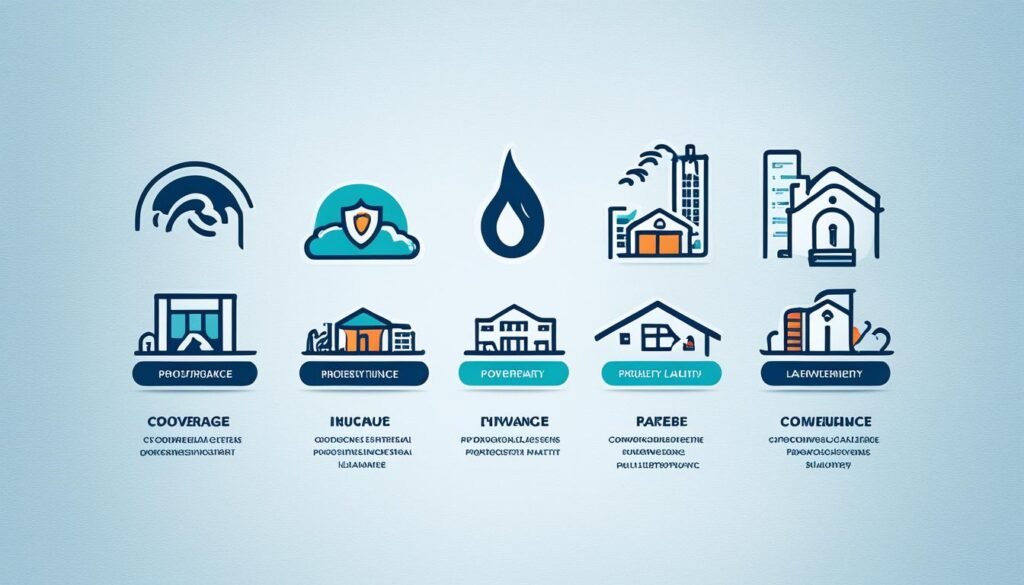
Commercial property insurance policies typically offer two main coverage options to protect a business’s physical assets: replacement cost coverage and actual cash value coverage. Understanding the differences between these options is crucial when determining the appropriate level of business property insurance for your company.
Coverage Options
Replacement cost coverage pays the full cost to repair or replace the insured property with materials of like kind and quality, without deduction for depreciation. This ensures that businesses can restore their property to its pre-loss condition, minimizing the financial impact of property damage and covered losses.
On the other hand, actual cash value coverage factors in depreciation and only provides reimbursement for the current market value of the damaged or destroyed property. While this option may result in lower insurance claims and policy limits, it leaves businesses responsible for covering the difference between the actual cash value and the full replacement cost.
Replacement Cost vs Actual Cash Value
| Replacement Cost Coverage | Actual Cash Value Coverage |
|---|---|
| Pays the full cost to repair or replace the insured property | Provides reimbursement based on the current market value of the damaged or destroyed property, factoring in depreciation |
| Ensures businesses can restore their property to its pre-loss condition | May result in lower insurance claims and policy limits, but leaves businesses responsible for the difference between actual cash value and replacement cost |
| Minimizes the financial impact of property damage and covered losses | Can be a more affordable option, but provides less comprehensive coverage |
When selecting a commercial property insurance policy, businesses should carefully consider their specific needs, budget, and risk tolerance to determine the most appropriate coverage option between replacement cost and actual cash value.
Risk Management Strategies

In addition to purchasing commercial property insurance, businesses can employ various risk management strategies to further protect their investments. These strategies include regular property maintenance, thorough tenant screening and compliance with legal requirements, as well as investment diversification to mitigate potential losses.
Regular Property Maintenance
Proper property maintenance is essential for preventing property damage and minimizing the risk of costly claims. Regular inspections, timely repairs, and proactive upkeep can help businesses maintain the condition of their buildings, equipment, and other physical assets, reducing the likelihood of unexpected property damage from factors such as wear and tear, natural disasters, or accidents.
Tenant Screening and Legal Compliance
Carefully screening potential tenants and ensuring legal compliance can also be an effective risk management strategy for commercial property owners. Thorough tenant background checks, credit assessments, and verification of references can help identify responsible, reliable occupants and minimize the risk of property damage, liability issues, or non-payment of rent. Additionally, staying up-to-date with regulatory requirements and lease agreements can protect businesses from legal complications and financial liabilities.
Investment Diversification
Investment diversification is another important risk management tactic for commercial property owners. By diversifying their property portfolio, businesses can reduce their exposure to localized risks, such as natural disasters or economic downturns in a specific region. This portfolio diversification can help ensure business continuity and liability protection, even if one or more properties are impacted by unforeseen events.
By implementing these risk management strategies in conjunction with commercial property insurance, businesses can enhance their property damage prevention efforts, tenant selection process, and overall risk mitigation approach, further safeguarding their valuable commercial investments.
Tailoring Coverage for Business Size

Commercial property insurance coverage can be tailored to meet the specific needs of businesses of all sizes. From small enterprises to large corporations, insurers offer a range of customized solutions to address the unique risks and requirements of each organization.
Small Business Property Insurance
For small businesses, a Business Owners Policy (BOP) often provides a comprehensive package that combines commercial property insurance with general liability coverage. BOPs are designed to protect small businesses’ physical assets, including buildings, equipment, and inventory, while also shielding them from third-party claims. Insurers like Travelers Deluxe offer BOPs that can be further customized to address the specific needs of small businesses.
Midsized Business Property Insurance
As businesses grow, their property insurance needs become more complex. Midsized companies may require more extensive coverage, such as the OMNI policy from leading insurers, which offers custom coverage solutions to address industry-specific needs and complex risks. These policies often include protection for global operations, ensuring comprehensive coverage for businesses with expanded geographic footprints.
Large and Specialty Business Property Insurance
For large enterprises and specialized businesses, insurers provide tailored commercial property insurance policies that cater to their unique risk profiles and industry requirements. These custom coverage solutions can include enhanced protection for complex assets, expanded liability coverage, and risk management services to address the diverse needs of large and specialty businesses.
Claims and Loss Prevention Services
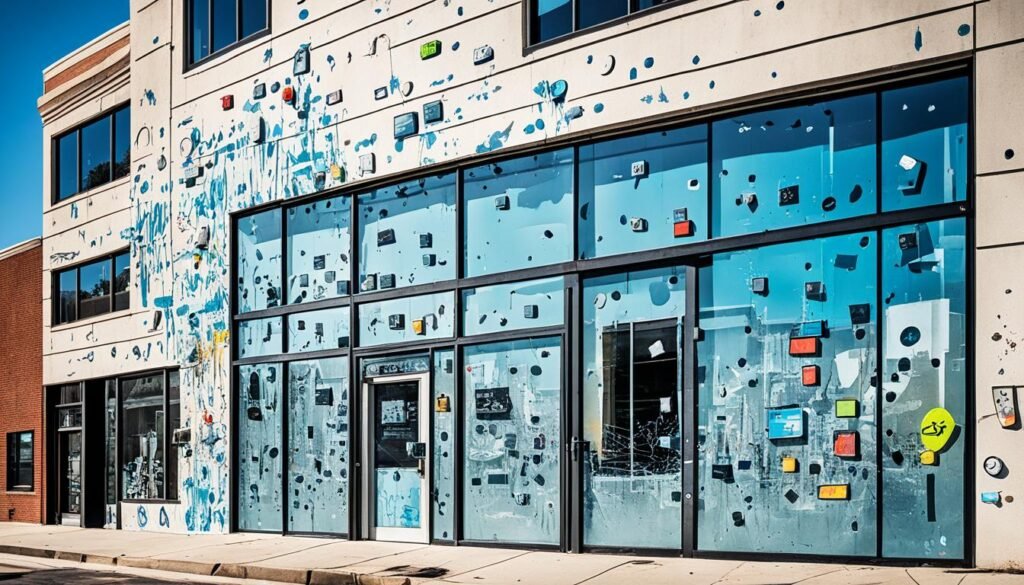
When it comes to commercial property insurance, the benefits extend beyond comprehensive coverage. Many insurance providers offer valuable claims and loss prevention services to assist businesses in times of need. Should a covered property damage incident occur, insurers can guide companies through the claims assistance process, helping them recover quickly and minimize disruptions to business continuity.
In addition to claims support, commercial property insurance policies often include access to risk control expertise and loss prevention strategies. Insurance providers can work closely with policyholders to identify potential risks, implement loss mitigation measures, and develop robust risk management plans. This proactive approach helps businesses safeguard their physical assets and avoid costly property damage in the first place.
| Claims and Loss Prevention Services | Benefits |
|---|---|
| Claims Assistance | Guidance through the claims process to facilitate a timely recovery |
| Loss Mitigation Strategies | Recommendations and support to implement effective loss prevention measures |
| Risk Management Expertise | Comprehensive risk assessment and customized risk control solutions |
By leveraging the claims and loss prevention services offered by their commercial property insurance provider, businesses can safeguard their investments, maintain business continuity, and focus on driving growth and success, even in the face of unexpected property damage incidents.
Partnering with an Insurance Provider
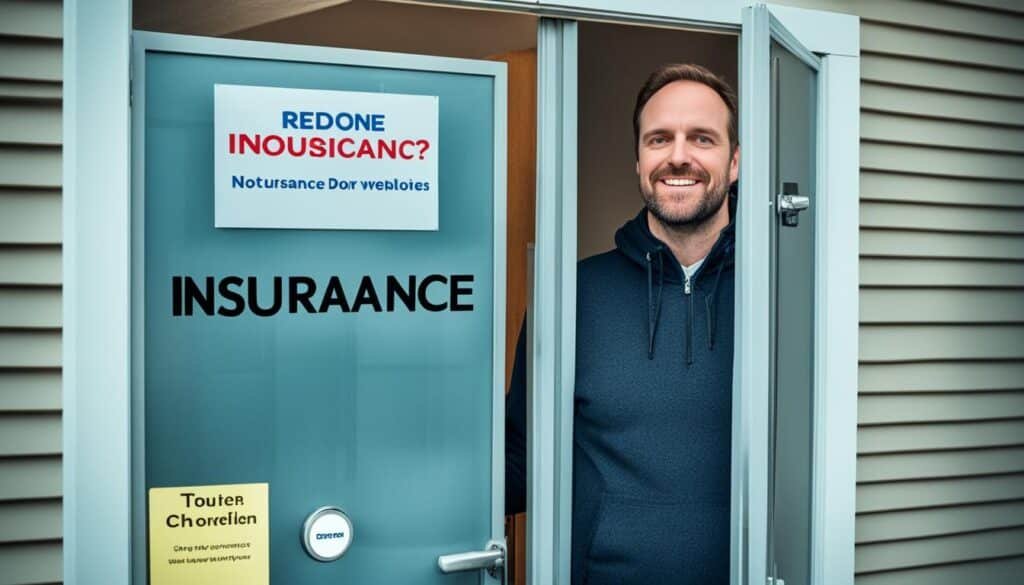
When selecting a commercial property insurance provider, businesses should consider several key factors to ensure they receive the coverage, support, and expertise they need. This includes assessing the provider’s industry expertise, evaluating their claims support and risk management services, and determining whether they offer policy customization to meet the specific needs of the business.
Choosing the Right Insurer
Researching and evaluating insurance providers is crucial when securing commercial property insurance. Businesses should look for an insurer with a proven track record in their industry, strong financial stability, and a reputation for excellent customer service. Additionally, the provider’s ability to offer tailored coverage solutions and risk management support can be valuable in protecting the company’s assets and minimizing potential disruptions.
Working with Agents and Brokers
Partnering with experienced insurance agents and brokers can also be beneficial when navigating the complexities of commercial property insurance. These professionals can help businesses assess their coverage needs, identify the most appropriate policy options, and ensure they are receiving the best value for their investment. By collaborating with knowledgeable insurance agents and brokers, businesses can gain valuable insights and personalized guidance throughout the insurance selection and management process.
Also Read: Cure Auto Insurance: Your Trusted Coverage Provider
Conclusion
Commercial property insurance is a critical risk management tool for businesses of all sizes, providing essential protection for a company’s physical assets, including buildings, equipment, and inventory. By safeguarding these crucial resources, commercial property insurance helps ensure business continuity, financial stability, and the ability to recover quickly from unexpected events like fires, natural disasters, and theft.
Investing in comprehensive commercial property insurance coverage is a wise decision for any business, regardless of its size or industry. It offers a range of coverage options to meet the specific needs of small, midsized, and large companies, while also providing access to valuable claims and loss prevention services. By partnering with experienced insurance providers and working closely with knowledgeable agents and brokers, business owners can tailor their commercial property insurance policies to effectively manage risk and protect their most valuable assets.
In today’s uncertain business landscape, the importance of commercial property insurance cannot be overstated. It serves as a critical safety net, enabling companies to focus on growth and success, rather than worrying about the financial impact of property-related incidents. By prioritizing the protection of their business assets, companies can safeguard their long-term viability and position themselves for continued prosperity in the years to come.
FAQs
Q: What does commercial property insurance cover?
A: Commercial property insurance provides coverage for your business’s physical assets, including buildings, equipment, inventory, and furniture. It also typically covers losses due to theft, fire, vandalism, and certain natural disasters.
Q: How is the cost of commercial property insurance determined?
A: The cost of commercial property insurance is determined based on factors such as the value of your property, the location of your business, the type of coverage you need, and the level of risk associated with your industry.
Q: Do I need commercial property insurance?
A: If you own or lease a commercial property, it is highly recommended to have commercial property insurance to protect your investment and assets. In some cases, landlords may require tenants to have this coverage as part of the lease agreement.
Q: What is the difference between general liability insurance and commercial property insurance?
A: General liability insurance covers claims for bodily injury and property damage caused by your business operations, while commercial property insurance focuses on protecting the physical assets of your business from damage or loss.
Q: How do I file a commercial property insurance claim?
A: To file a commercial property insurance claim, you need to contact your insurance company and provide details of the incident, such as what happened, when it occurred, and the extent of the damage. An adjuster will then assess the claim and process the necessary paperwork.
Q: What are some common types of commercial property insurance coverage?
A: Some common types of commercial property insurance coverage include property damage coverage, business interruption insurance, equipment breakdown coverage, and inland marine insurance to protect your business assets both on-site and off-site.
Q: Is commercial property insurance required by law?
A: Commercial property insurance is typically not required by law, but it is highly recommended to protect your company’s physical assets and ensure business continuity in case of unexpected events such as theft, fire, or natural disasters.




